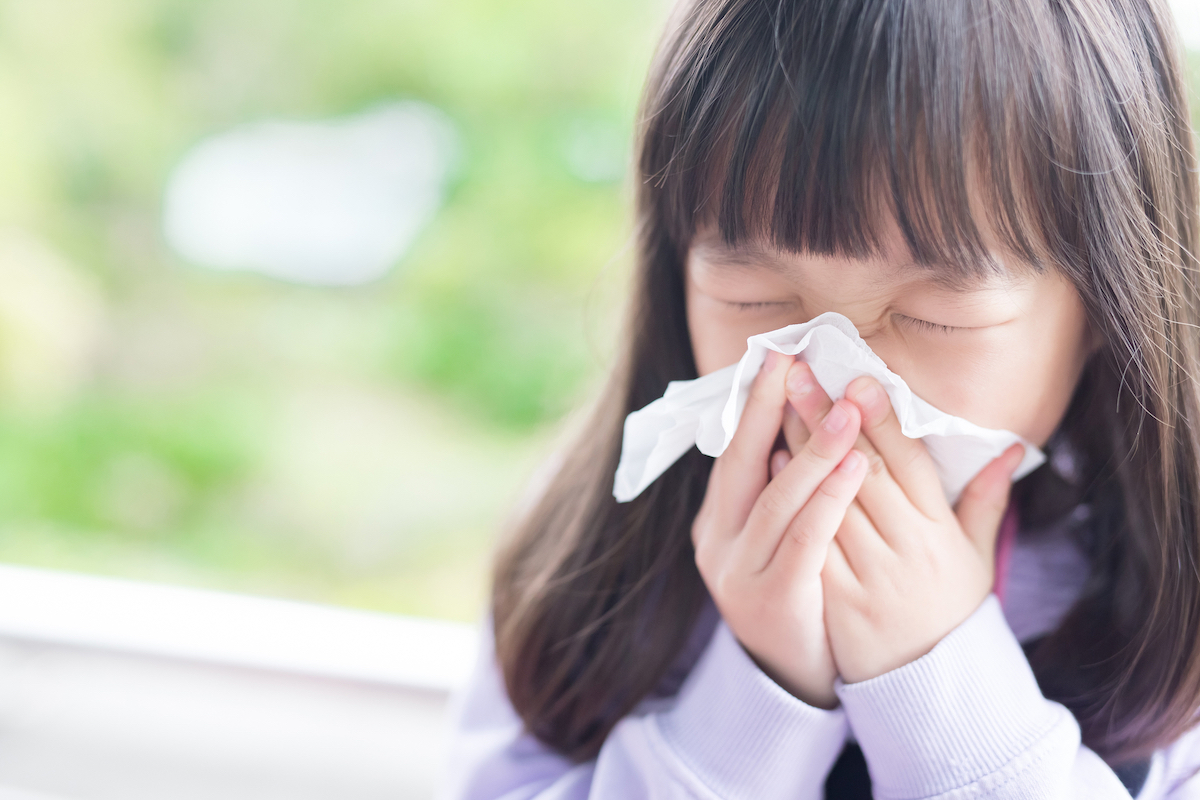Back to school usually means new backpacks, a lot of anticipation, and unfortunately, more exposure to germs and viruses, especially as COVID-19 protocols have been lifted. As art supplies are passed and noses are blown, infections can circulate around the classroom. And then your home.
How do you know when your child just caught a bug or their symptoms may indicate a chronic condition? Let’s learn more about some of the more common infections that spike when the school year starts.
Sinus Infection
What causes one?
Sinus infections are an inflammation of the tissue in the four cavities in your head. Your sinuses make thin mucus that typically drains from your nose, keeping it clean. If your sinuses become blocked and filled with fluid germs (viral, bacterial, or fungal) can grow to cause swelling.
What are the symptoms?
Sinus infections can be confused with the common cold, however, there are some distinctions. The American Academy of Otolaryngology-Head and Neck Surgery describes sinusitis symptoms in children as the following:
- A cold lasting more than 10 to 14 days
- Low- or even high-grade fever
- Thick yellow-green nasal drainage for at least three days in a row
- Post-nasal drip, sometimes with a sore throat, cough, bad breath, nausea, and/or vomiting
- Headache, usually in children age six or older
- Irritability or fatigue
- Swelling around the eyes
How Are They Treated?
If the sinusitis is caused by bacteria, you or your child may require antibiotics to clear the infection. Nasal steroid or saline sprays may provide temporary relief of your symptoms.
When Should You See a Doctor?
If your child is experiencing chronic sinusitis (where symptoms persist for several months) or multiple sinus infections each year they should see an ENT (ear, nose, and throat specialist) to determine whether surgery or another treatment is indicated.
Ear Infection
What Causes One?
Otitis is an infection of the middle ear that is typically caused by blocked Eustachian tubes, which connect the upper part of the throat to the middle ear. If they become blocked fluid cannot drain from the ear.
Children are more susceptible to them because their eustachian tubes are smaller and horizontal, making them harder to drain.
What Are The Symptoms?
The National Institute on Deafness and Other Communication Disorders describes symptoms of ear infections in children as follows:
- Tugging or pulling at the ear(s)
- Fussiness and crying
- Trouble sleeping
- Fever (especially in infants and younger children)
- Fluid draining from the ear
- Clumsiness or problems with balance
- Trouble hearing or responding to quiet sounds
When Should You See A Doctor?
If your child is experiencing a lot of pain they will likely benefit from antibiotics to clear the infection. If antibiotics don’t provide relief or your child has recurring infections, they may have a chronic problem that may benefit from the placement of ventilation tubes in the ear or removal of their adenoids to prevent infection from spreading to the eustachian tubes.
COVID-19
What Causes It?
Someone becomes infected with COVID-19 when the SARS-CoV-2 virus enters their body through airborne transmission or the transfer of the virus from one’s hands to their face. It then enters the nasal passages, multiplying and moving into the lungs.
While children typically have less developed immune systems, children seem to fare better with COVID-19 than adults with a much more immediate, innate response to the virus.
What are the Symptoms?
One thing we’ve learned about COVID-19 is that the symptoms can vary dramatically between sufferers and variants, however, they seem to be milder in children. Some symptoms include:
- Fever or chills
- Cough
- Shortness of breath or difficulty breathing
- Fatigue
- Headache, muscle, or body aches
- New loss of taste or smell
- Sore throat
- Congestion or runny nose
- Nausea, vomiting, or diarrhea
When Should You See a Doctor?
If your child has trouble breathing or appears to have lingering symptoms like tinnitus or the loss of taste or smell, then you should contact your physician.
Is Your Child Experiencing a Chronic Ear or Sinus Problem?
If your child continues to have earaches or sinus pain that goes beyond a bug they’ve picked up at school, an otolaryngologist (ear, nose, and throat specialist) can help get to the root cause and propose some long-term solutions to provide relief and prevent longer-term health problems. If you’d like to schedule a visit, please call our office or make an appointment online.




Comments are closed here.